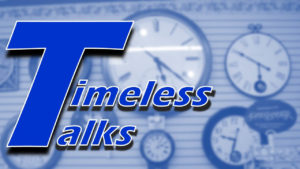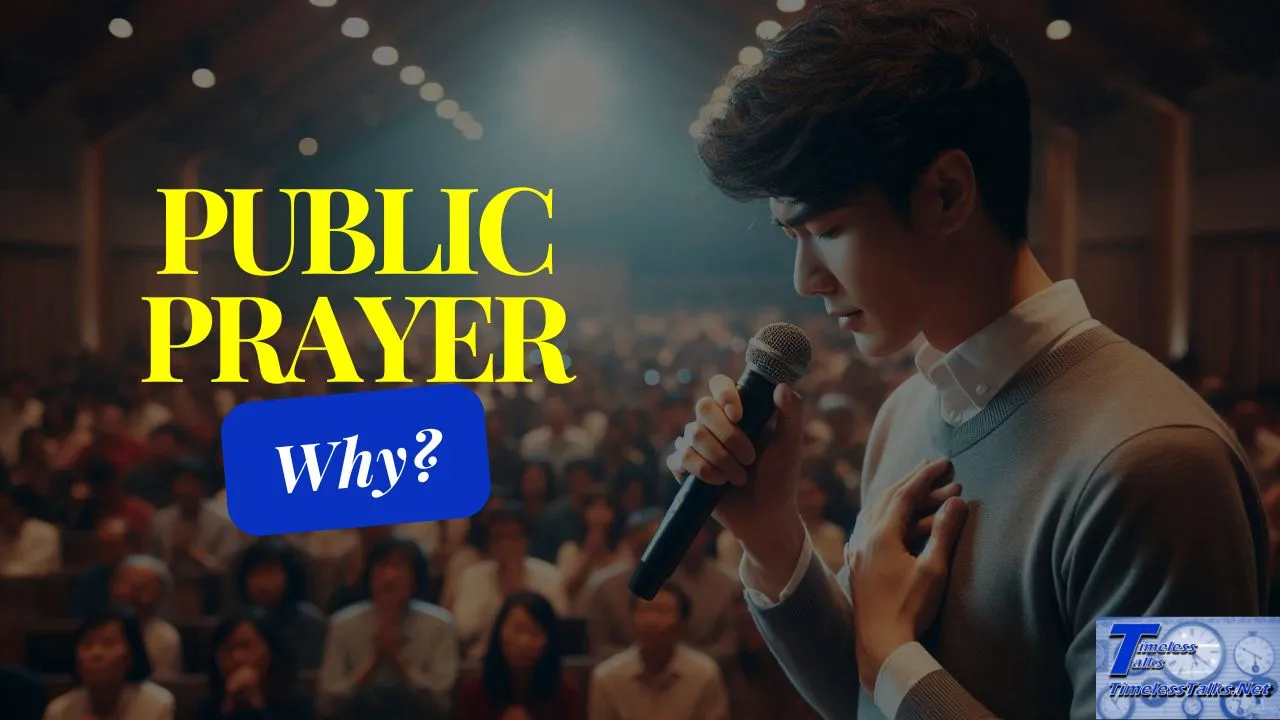"Did Jesus Criticize Public Prayer?
Transcript
Delivered by John Ratliff and Barry Haynes
Transcribed by Tim Estes
You can:
- DOWNLOAD offline on your computer/tablet/phone as a PDF file and read it anytime, OR
- Use the CONTACT LINK above (under Services) to request your collection be sent to you via USPS. This will REQUIRE you to include your mailing address (U.S. only).
Did Jesus Criticize Public Prayer? Transcript
Barry:
You know, you hear a lot in our world today about the idea of public prayer. And it seems that there have been those that have made a movement almost to abolish public prayer. We want to remove it from public events, maybe at the football game or at the graduation or, or some civic function that they’re almost as those that push to get rid of public prayer.
And for the Christian, we get upset by that because we think about prayers being such an important part of our lives.
But it might surprise us that a person who was most against public prayer was Jesus himself.
Today we’re going to look at a package of scripture where Jesus talks about public prayer and how we should properly view it.
Stay with us after the break and we’ll look at those verses.
INTRO
John:
We’d like to invite you to open your Bibles to Matthew 6 and look with this at verses 5-7, where there Jesus says, (Matthew 6:5-7) “And when you pray, you shall not be like the hypocrites. For they love to pray standing in the synagogues and on the corners of the streets, that they may be seen by men. Assuredly, I say to you, they have their reward. (6) But you, when you pray, go into your room, and when you have shut your door, pray to your Father who is in the secret place; and your Father who sees in secret will reward you openly. (7) And when you pray, do not use vain repetitions as the heathen do. For they think that they will be heard for their many words.”
In this text, Jesus actually puts a disclaimer on the idea of public prayer.
And when he gives us that information there, he talks about the idea of those individuals, that they’re praying simply to be seen by others.
And so we have to ask ourselves at times when we’re out in public and we offer a prayer, what is our motive behind it?
Why do we want to do that?
And are we trying to bring undue attention to ourselves?
Barry:
I remember years ago when my son was three or four, we were at church and a fella, he got up and was lea ding a prayer and he was kind of going on a rant. You know, he was talking about, you know, how bad the world is and all these things. And he, my son leaned over to me and said, is he preaching or is he praying? And I said out of the mouth of babes, right? Because his intent there was not really to talk to God, to ask God to intercede. It was more he was just kind of spewing some things forth.
And I think sometimes that spewing forth people do is to gain attention to themselves, almost like we we’ve talked about in the previous verses about practicing the righteousness before men. That seems to be the motive that Jesus here is very concerned with.
Their public prayers are not because they’re interested in talking to God in a public venue, but rather they’re interested in promoting themselves in a public venue.
John:
Right.
And it kind of goes back to what you said a little while ago. Whenever people get upset about wanting to remove public prayer from school, public prayer from football games, we have to ask ourselves, why are we really upset about that?
Is it because we want that opportunity to pray to God? Or is it because we want others to know we’re praying to God? And really, that’s kind of what Jesus is getting at.
Barry:
I remember, I think it was Cokie Roberts, she said. As long as they teach algebra in school, there will be prayer in school.
You know, you can pray without it ever being heard. But we don’t want to do that in the sense that we are embarrassed by prayer.
That’s not what he’s talking about here, but rather it’s that that self-absorbed, doing it to get attention where prayer becomes meaningless.
And I think it’s interesting because he uses a phrase there he says “do not be like the heathens who use that meaningless repetition.” And I think that’s an, I mean, what do you think he’s getting at?
I’ve always felt like there he’s talking about this idea we’re praying just the same thing over and over without we’ve lost the meaning of it. It’s just almost an act rather than is a real heartfelt conversation.
John
Yeah, I think that’s absolutely correct.
It gets to the point where sometimes our prayers are more of just something we have memorized than actually coming from our heart.
In fact, there’s several phrases that we often use within our prayers, and there’s nothing wrong with those phrases in and of themselves, but I do fear they become meaningless because it’s just something that we kind of attach to it, kind of like the idea of “guide, guard and direct us”, or “ready recollection.” And there’s other phrases that we often use in prayers that do run the risk of becoming as what Jesus calls “vain repetition” per se.
Barry
Yeah.
You know, we see that in the religious world where people will almost prescribe a prayer and you view to repeat ad nauseam.
And we’ll see later Jesus gives us a model prayer. But I don’t think it was a model prayer in the sense of repeat these words at, you know, repeat these words. It was a sense of how we’re supposed to pray.
And I think that’s even the same thing you’re talking about. You know, we get a phrase or something. It’s a good phrase, but when we get to the point where we’re just using it and not thinking about it, we’ve lost the meaning of prayer.
And I think that’s even what he’s talking about here, that we lose the meaning of prayer when we do it for some kind of public accolade instead of it drawing us closer to God.
Thank you so much for joining us.
You may have some questions about prayer or some of the things that we’ve talked about today. We’d love to hear from you. We have some information on the screen that you can contact either by phone, by text, or by e-mail.
We’d love to hear from you.
And if you have any questions about anything we’ve said today, we’d love to try to hear them and possibly talk about them later on later videos.
Thank you so much for joining with us today and have a great day.

